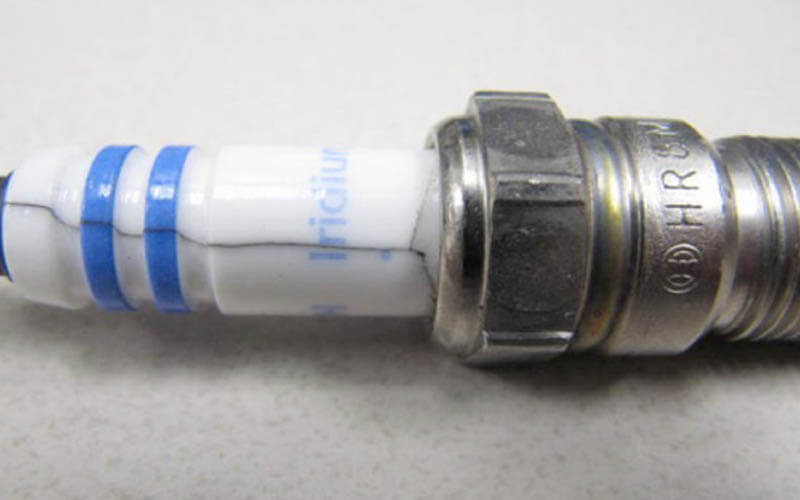Spark plugs are such a basic component that many people often overlook the faults and complexities.
A typical spark plug will fire between 27.5 million and 110 million times during its lifetime. Fortunately, cracked plug insulators are uncommon, but when they do occur, it indicates that something is wrong with the engine.
In this article, I will tell you everything you need to know about what causes a spark plug to crack in detail.
Components of a Typical Spark Plug
Spark plugs typically have three parts –
1. Housing
There is an outer shell that goes around the insulator, supports the insulator, and places the spark plug in the engine.
2. Insulator
It keeps high voltage from getting out of the terminal, shaft, and center electrode by making them separate from the housing.
3. Electrodes
An internal wire and a ceramic series resistance are widely used to minimize RF noise emissions from the sparking of the center electrode.
Factors Affecting Spark Plugs Failure
It can be caused by various factors, ranging from –
- Using the spark plug with the wrong heat range
- Chemical contamination
- Putting too much torque on your spark plug
Cracked Spark Plug Symptoms

To avoid major issues with your vehicle, keep an eye out for the mentioned indicators of a damaged spark plug. Here are some common warning signs that indicate your spark plugs are failing, as well as what happens when they die.
1. Fuel Efficiency
Spark plug troubles may cause your engine to spend more gasoline than usual. This is because the ECM has no control over the spark or oxygen levels in the air. It adds fuel to improve combustion.
2. Cylinder Misfire
It’s possible that a worn, contaminated, or damaged spark plug will fail to ignite the air/fuel mix.
3. Engine Light Blinking
Unknown spark plug issues are often discovered when the engine light comes on. A single-cylinder misfire can be detected in thousands of completely good ignitions.
4. Difficult Start
Cold engine ignition is tricky. Due to insufficient vaporization, the ECM supplies fuel to prevent spark plug wear. In this case, the engine starts slowly or doesn’t start.
5. Engine Misfire
When the engine is idle, spark plug problems might cause increased vibration, which indicates a cylinder misfire.
6. Performance Degrade
To ignite more fuel and generate more power, the spark plug is put under more strain during acceleration. Defective best spark plugs or ignition coils may well not meet demand.
7. Hesitancy
Hesitation during acceleration and surges are both caused by the engine not responding promptly to driver input. Then, an unexpected power spike may occur. This slight power supply delay may indicate a defective spark plug.
FAQ
No, replace it. If the crack continues to the electrode, you risk explosion or preignition. You run the risk of decreasing performance over time. Why risk it?
While the engine is warm, move the piston to BDC to remove the plug. Then, cover the fractured plug shell with penetrating oil. After a few minutes, insert a suitable easy out and let it work.
According to your owner’s manual, your manufacturer recommends replacing your spark plugs every certain mile. That’s fine if you’re using OEM plugs. The exact date of replacement will depend on several factors.
Conclusion
It’s essential to keep an eye out for signs of trouble with your car’s spark plugs, which can help increase fuel economy and prevent you from getting stuck. Now that you know what causes a spark plug to crack, be sure to identify the symptoms of a broken spark plug and try to prevent it yourself if you are an expert enough.
Otherwise, consult with an expert if you have any questions concerning your spark plugs.


